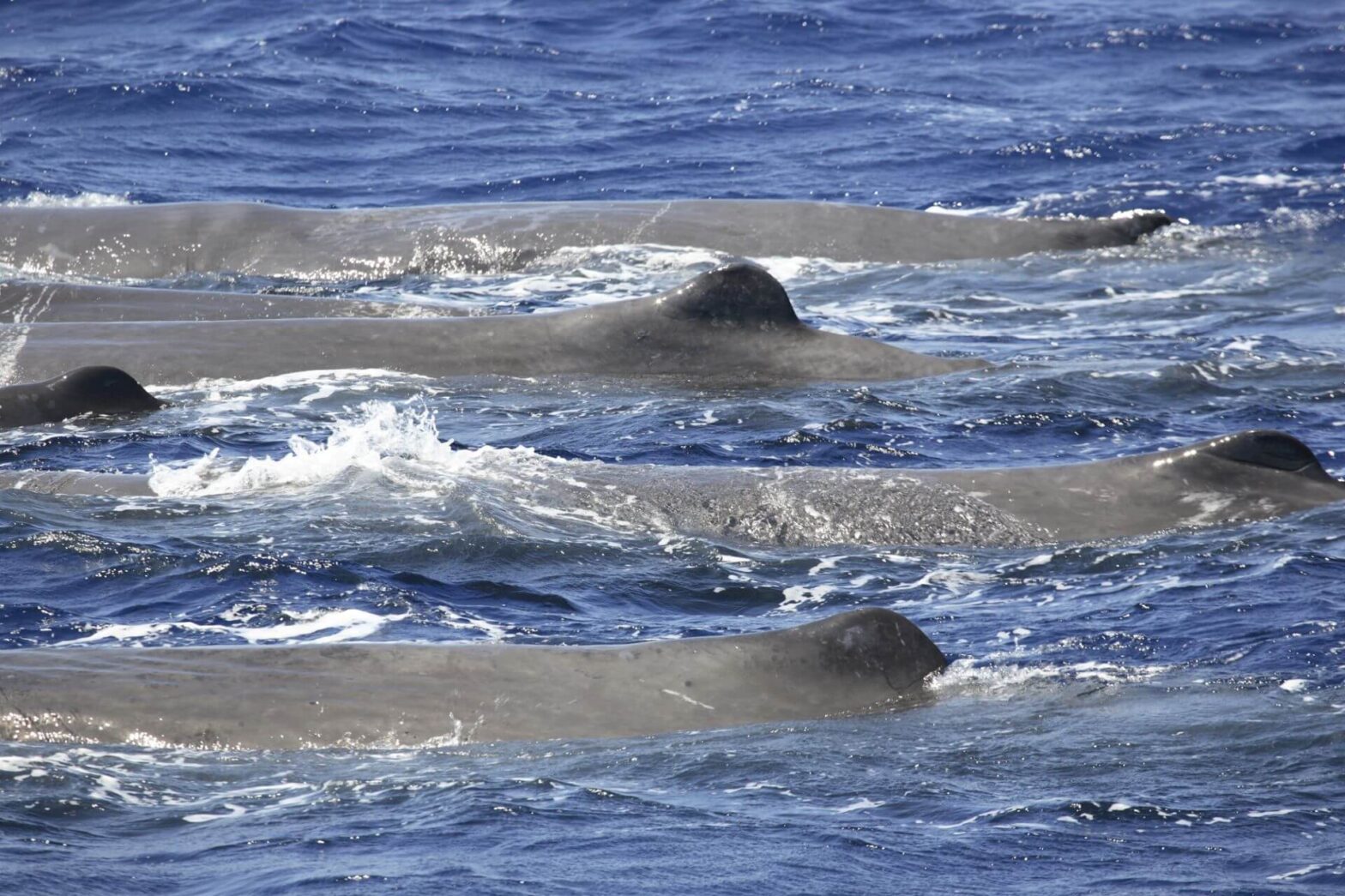Will «Moby Dick» disappear from the Eastern Mediterranean Sea?
At the most, 200 to 250 sperm whales remain in the eastern Mediterranean today. Research from the Pelagos Cetacean Research Institute, which is supported by OceanCare, indicates that the population may have already been reduced to 110 to 150 animals in the past 10 to 15 years. The greatest threat to these endangered animals is ship collisions due to the approximately 30,000 merchant ships or fast ferries that cross their habitat, the Hellenic Trench, at high speed every year.
The Hellenic Trench, which stretches from the Ionian Sea to the south of Crete and the Gulf of Rhodes, is a particularly important habitat for sperm whales. This deep-sea canyon offers sperm whales good foraging conditions. The area has been recognised as an Important Marine Mammal Area (IMMA) for sperm whales. However, this region is exposed to intense vessel traffic.
When surfacing becomes a death trap
Sperm whales dive up to 20 times a day to depths of 600 to 1,000 metres or even deeper to hunt deep-sea squid. Each dive can last 45 to 60 minutes, during which the whales produce so-called «clicks», regularly repeated signals to locate prey and to communicate with each other. At the end of a dive, the animals resurface exhausted, where they recover for 10 to 15 minutes before they are up for the next dive. If a vessel passes through the area during this time, the animals are at risk of being rammed or injured by the ship’s propeller.
More than half of the sperm whales that wash up dead on Greek coasts have fallen victim to collisions with ships. However, most of the animals killed by such collisions do not strand, according to scientists, but sink undetected to the seabed. Since ship collisions pose the greatest danger to sperm whales in the eastern Mediterranean, OceanCare is pursuing three decisive measures to protect the animals: First, ships should re-route and avoid the sensitive area and also reduce their speed. Where and when re-routing is not possible, the localisation and early warning system SAvE Whales, developed by OceanCare, is designed to act in a complementary way alerting captains to slow down and navigate with extreme caution.
First significant successes in dialogue with shipping companies
Working in a coalition with IFAW, Pelagos Cetacean Research Institute and WWF Greece, OceanCare is joining forces and collectively approaching shipping companies to convince them to avoid navigating through the sperm whale habitat and to re-route. The proposal describes specific recommendations for shipping routes based on the know-how of years of sperm whale research in the region. With first important successes.
In January 2022, the world’s largest shipping company, the Mediterranean Shipping Company (MSC), decided to relocate its routes along the west coast of Greece to protect the whales from collisions. Other companies, such as Euronav, have already followed MSC’s example.
In June 2022, the German Ship Owners Association (VDR) became the first national shipping interest group to publish its official recommendation to its 150 member companies to re-route and therefore avoid the sperm whale habitat.
In addition to merchant ships, speed reduction and route relocation must also be imposed on other large vessels such as RoRo ferries and cruise ships. To this end, OceanCare calls on the Greek government to fulfil its international obligations to protect sperm whales and to introduce mandatory provisions adjust shipping lanes. Such a proposal must be submitted to and adopted by the IMO. Such engagement is without alternative to prevent Moby Dick to disappear from the eastern Mediterranean Sea.
Photo: Pelagos Cetacean Research Institute
